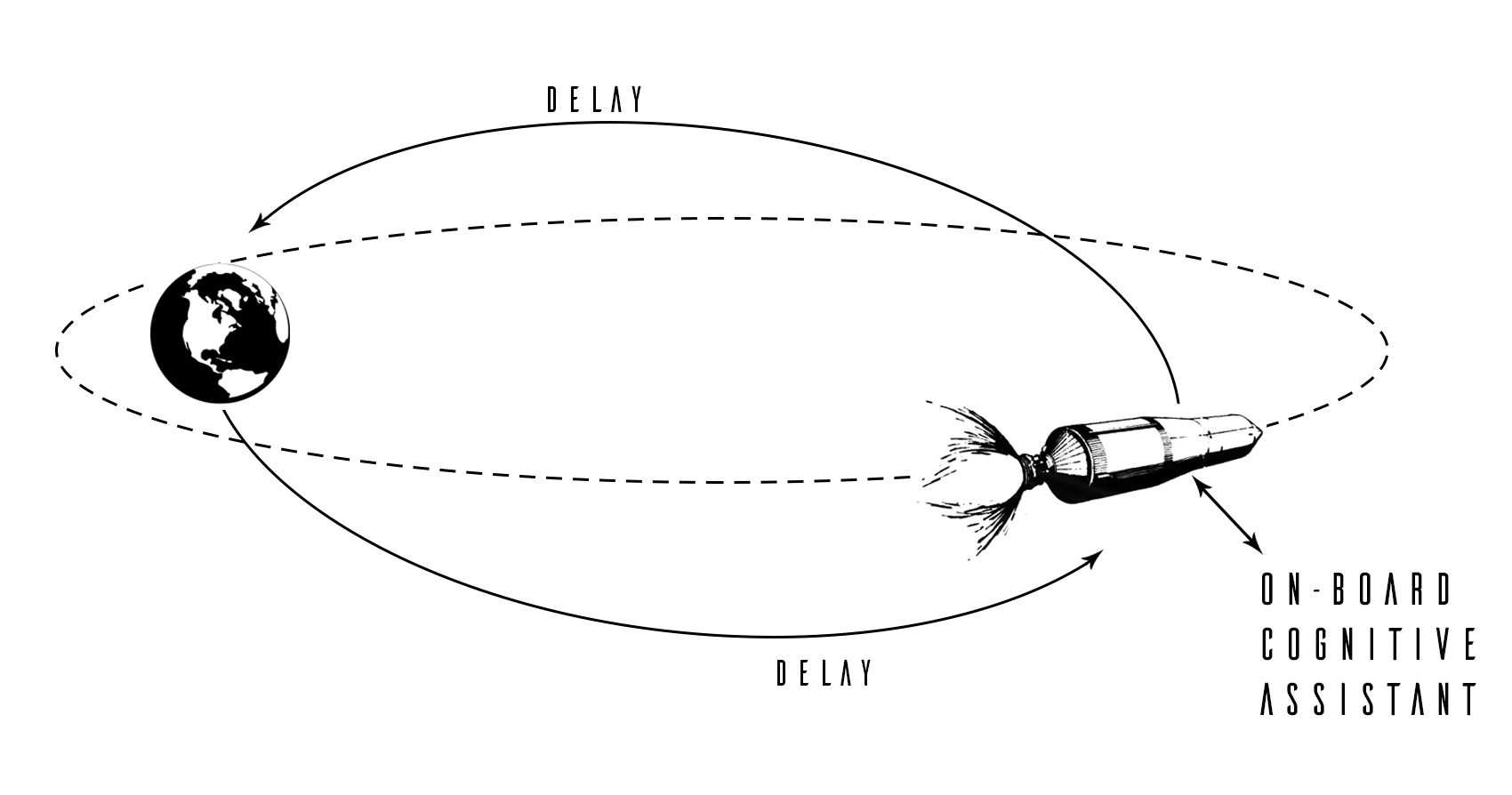Space operations beyond Low-Earth Orbit have the unique challenge of delayed or limited ground support as well as a greater range of situations without previously established procedures, guidance or mission requirements. The lack of guidance increases the risk of failures, and increases the crew’s workload and stress level while decreasing situation awareness (SA). Not all situations will have an established procedure, and it is during these off-nominal situations that the crew most requires some level of support to act immediately.
Off-nominal (e.g. unpredictable) situations refer to situations where established procedures, or guidance to support the space crew efforts in making quality decisions are not available. These situations may be rare or unpredictable situations, and the crew may not be ready to deal with the event adequately. However, give the communication latency, crews will have limited access to the ground control support. Onboard automation may be able to assist the decision making process, although there are several challenges about the design of processes by which guidance would be generated, ensure output reliability, and designing the interaction paradigm of human-automation (HA) collaboration.
With the Cognitive Assistant project, we aim to address these challenges by developing an adaptive Cognitive Assistant (CA) that is an intelligent support system that cognitively helps the space crew under off-nominal conditions to make a decision by collaborating with space crew. The design purpose of CA is mitigating the negative impact of communication latency and limited ground support (by providing real time support).
With the Cognitive Assistant project, we aim to address these challenges by developing an adaptive Cognitive Assistant (CA) that is an intelligent support system that cognitively helps the space crew under off-nominal conditions to make a decision by collaborating with space crew. The design purpose of CA is mitigating the negative impact of communication latency and limited ground support (by providing real time support).

